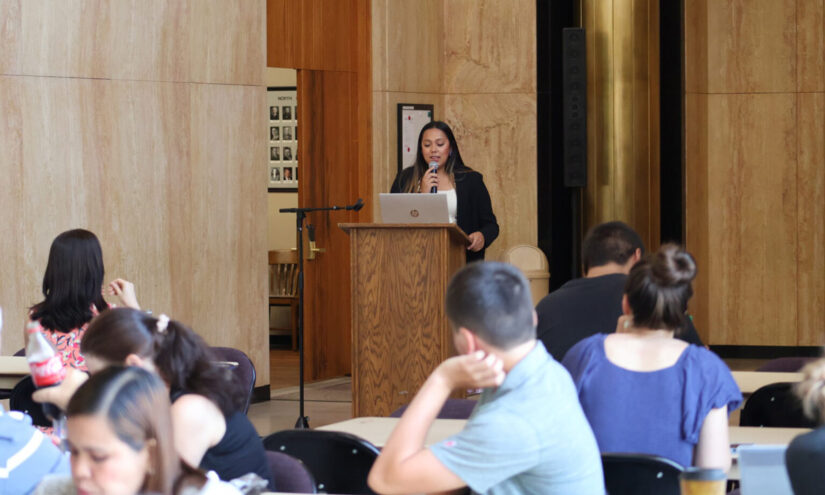Reflecting on the tenets that shape our educational practices is fundamental for …
Recent North Dakota Graduate Identifies Discrepancy in Educational Quality for Tribal Students
Jennifer Livingstone

North Dakota tribal schools require enhanced support, particularly for low-income students, emphasized Shayla Davis, a member of Superintendent Kirsten Baesler’s Student Cabinet, during a gathering of tribal educators on Friday.
“Education should be equitable for all,” stated Davis, a recent graduate of Devils Lake High School in 2023 and a member of the Mandan, Hidatsa, and Arikara Nation.
Advocates for Native education convened at the North Dakota Capitol for the Department of Public Instruction’s 10th annual Indian Education Summit held over two days. The event, featuring speeches, presentations, and breakout sessions, attracted approximately 200 participants, as reported by the Department of Public Instruction, with the objective of enhancing tribal education in North Dakota.
To Davis, this translates to providing every student with the necessary resources for success. While she expressed gratitude for the numerous teachers who positively influenced her life, she highlighted the disparities faced by Native students in North Dakota who lack similar opportunities.
“Recognizing the socioeconomic obstacles hindering nearby students from accessing the same crucial educational experiences at Devils Lake High School that have molded me into the person I am today was eye-opening,” shared Davis.
Encouraging schools to explore innovative methods to support students in need, Davis referenced a nonprofit organization in Cass County that established a school food and supply pantry for students as a model that could be replicated in tribal schools.
Reflecting on the importance of educating students about tribal history and culture, Davis stated, “Understanding our roots and identity is essential for growth.”
During a Friday breakout session, Ellie Shockley, a researcher with the North Dakota University System, conveyed similar feedback from educators and administrators working within Native communities.
Collaborating with the Department of Public Instruction’s Indian and Multicultural Education Office, Shockley conducted a 2023 survey on Native student needs, involving teachers and administrators from 35 North Dakota public schools with significant Native populations. The survey revealed efforts by schools to engage with Native communities and integrate tribal culture into their curriculum, while also indicating ample room for improvement.
Shockley explained, “Many participants advocated for the inclusion of courses that promote understanding of Native American culture, emphasizing the challenges faced by Native students such as school attendance and poverty.”
Despite positive strides, the survey highlighted gaps in awareness among educators regarding state resources dedicated to Native education. Only half of teachers and 72% of administrators were familiar with the Department of Public Instruction’s Native American Essential Understandings project initiated in 2015, aimed at developing educational materials on Native history and culture in North Dakota.
At a separate presentation, representatives from the Department of Public Instruction provided updates on an ongoing initiative to revise a series of ’90s-era textbooks recounting the history of North Dakota tribes.
The series comprises four textbooks focusing on the Mandan, Hidatsa, and Arikara Nation, Standing Rock Sioux Tribe, Turtle Mountain Band of Chippewa, and Spirit Lake Nation, respectively, along with an introductory book on North Dakota Tribes. Originally authored by tribal representatives and published by the state three decades ago, the textbooks are being revamped under the leadership of Lucy Fredericks, Director of Indian and Multicultural Education.
Through collaboration with entities like the Indian Education Coalition, United Tribes Technical College, North Dakota State University, and the University of North Dakota, efforts are underway to update the textbooks by incorporating new material covering the last 30 years of each tribe’s history. The revised editions will be distributed free of charge to schools and teachers statewide.
“The authenticity of these textbooks is guaranteed as they are directly sourced from the tribes,” affirmed Fredericks.
Funded by a grant from the federal CARES Act, the project aims to ensure comprehensive coverage of tribal histories. Additionally, plans to include the history of the Sisseton-Wahpeton Oyate in a dedicated textbook are under consideration, as shared by Nick Asbury of the Department of Public Instruction.


